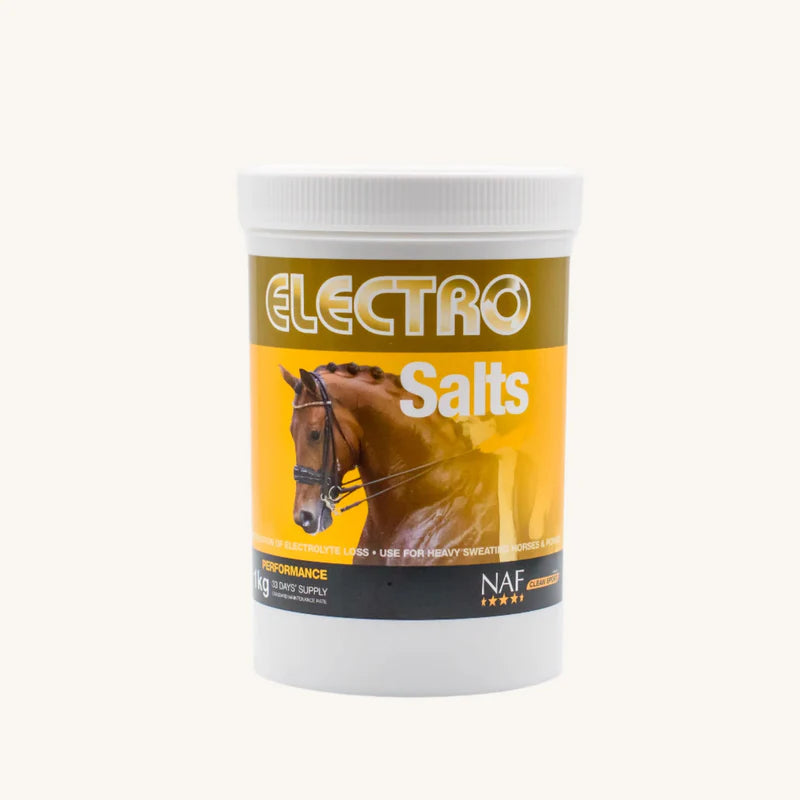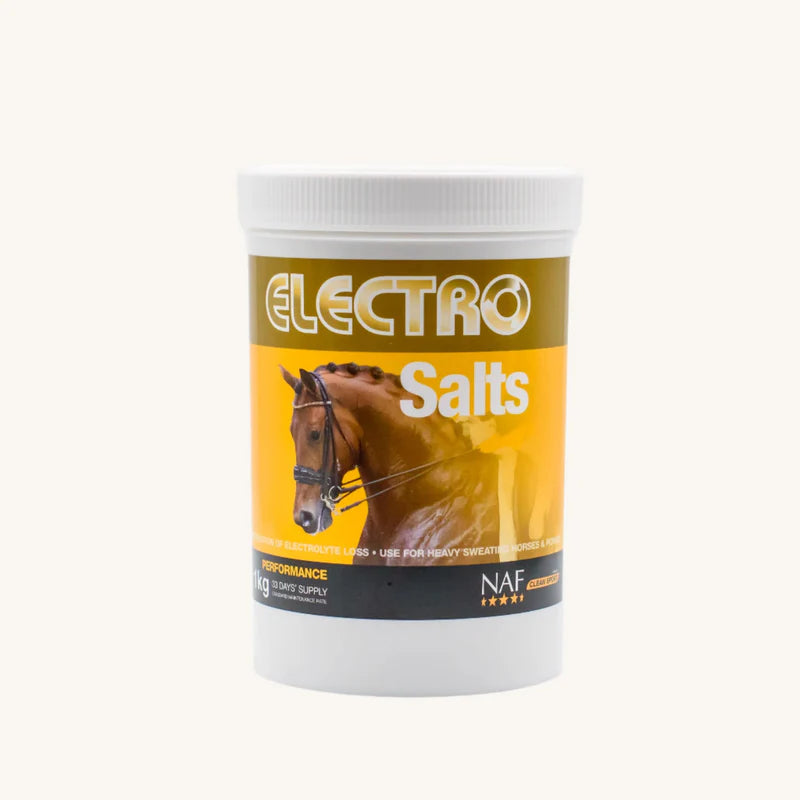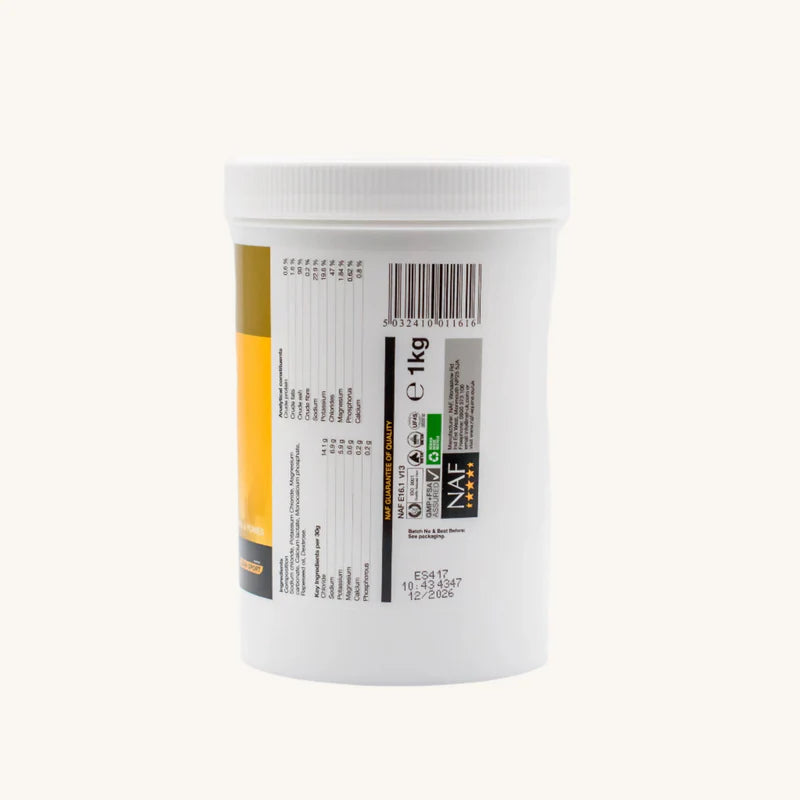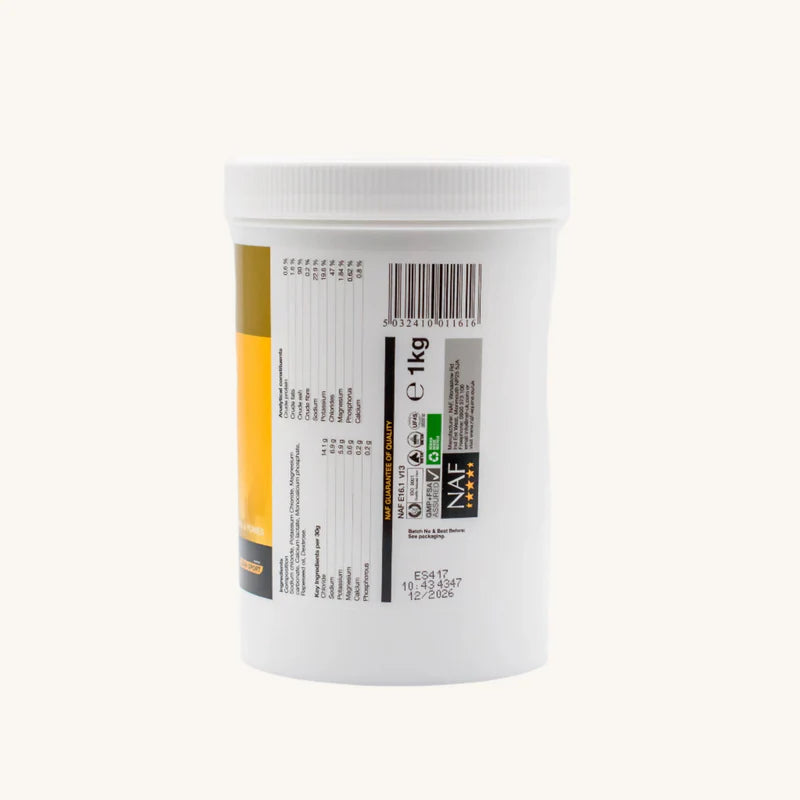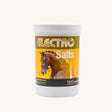NAF Electro Salts 1kg
NAF Electro Salts 1kg is backordered and will ship as soon as it is back in stock.
Couldn't load pickup availability
Description
Description
NAF Electro Salts is a concentrated formula designed to replenish vital electrolytes.
Horses sweat to regulate their body temperature, as a result, they lose essential salts such as sodium, potassium, calcium, and magnesium, which can lead to fatigue if not replaced. Failure to replace these electrolytes can lead to fatigue and, in severe cases, damage to muscle, bone, and cartilage tissue.
Electro Salts combines essential plasma salts with dextrose for efficient absorption, ensuring your horse recovers quickly and effectively.
Simply add to feed or drinking water. Always ensure your horse has access to clean, fresh water.
Specifications
Specifications
-
Size1kg
-
Product TypeVitality, Electrolytes, Performance
-
AnimalHorse
-
Composition
-
Analytical Constituents
-
Feeding Guide

